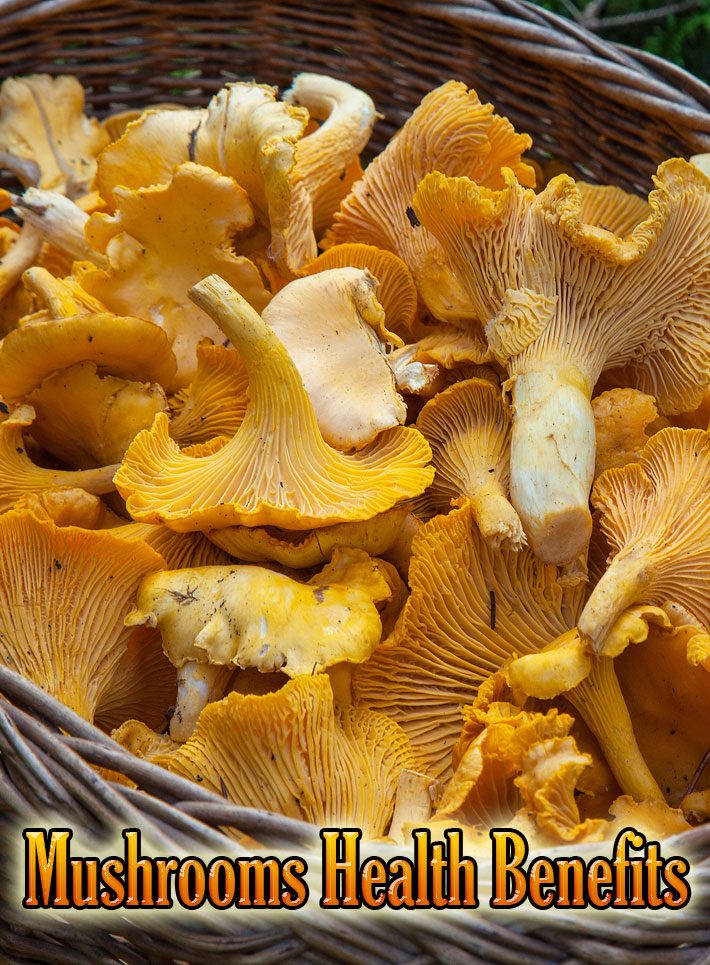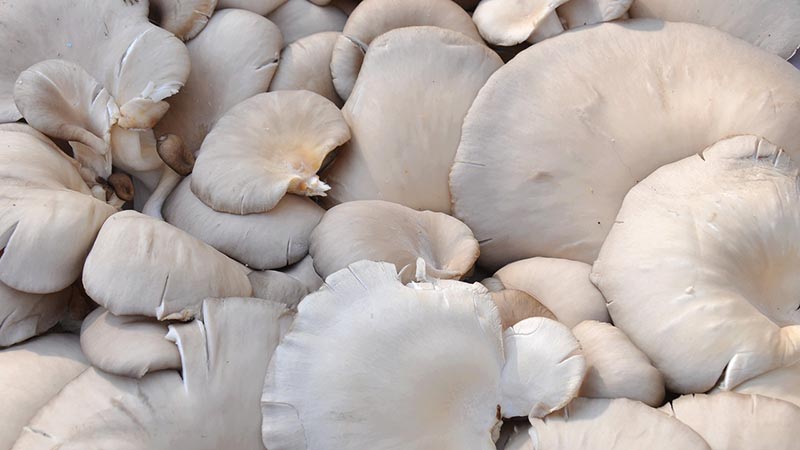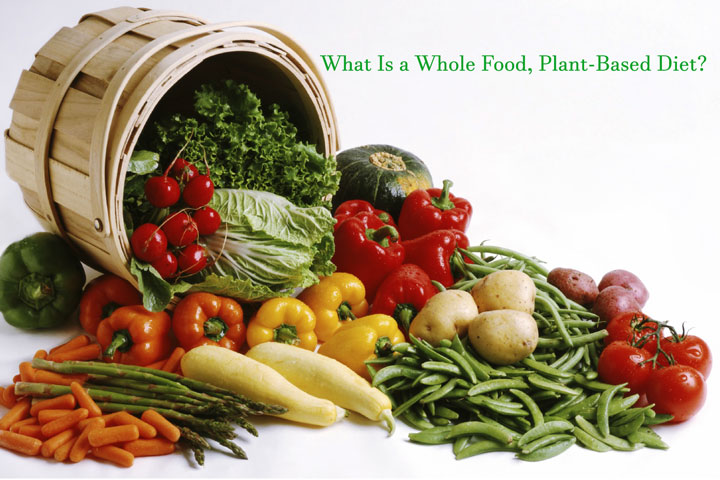
Mushrooms Health Benefits
Mushrooms contain some of the most potent natural medicines on the planet. Of the 140,000 species of mushroom-forming fungi, science is familiar with only 10 percent, according to world-renown mycologist Paul Stamets, who has written six books on the topic.
About 100 species of mushrooms are being studied for their health-promoting benefits. Of those hundred, about a half dozen really stand out for their ability to deliver a tremendous boost to your immune system.
It’s important to eat only organically grown mushrooms because they absorb and concentrate whatever they grow in — good OR bad. This is what gives mushrooms their potency. Mushrooms are known to concentrate heavy metals, as well as air and water pollutants, so healthy growing conditions is a critical factor.
While it may sound strange, we’re actually more closely related to fungi than we are to any other kingdom, as we share the same pathogens, meaning bacteria and viruses.
As a defense against bacterial invasion, fungi have developed strong antibiotics, which also happen to be effective for us humans. Penicillin, streptomycin, and tetracycline all come from fungal extracts.
The Many Health Benefits of Mushrooms
The FASEB Journal recently published nine studies on mushrooms that were also presented at Experimental Biology 2013, which detailed a wide variety of health benefits, including:
- Weight management: One study, found that substituting red meat with white button mushrooms can help enhance weight loss. Obese participants with a mean age of just over 48 years ate approximately one cup of mushrooms per day in place of meat. The control group ate a standard diet without mushrooms.
- At the end of the 12-month trial, the intervention group had lost an average of 3.6 percent of their starting weight, or about seven pounds. They also showed improvements in body composition, such as reduced waist circumference, and ability to maintain their weight loss, compared to the control group.
- Improved nutrition: One dietary analysis found that mushroom consumption was associated with better diet quality and improved nutrition.
Increasing vitamin D levels through your diet: Consuming dried white button mushroom extract was found to be as effective as taking supplemental vitamin D2 or D3 for increasing vitamin D levels (25-hydroxyvitamin D). - Improved immune system function: Long chain polysaccharides, particularly alpha and beta glucan molecules, are primarily responsible for the mushrooms’ beneficial effect on your immune system. In one study, adding one or two servings of dried shiitake mushrooms was found to have a beneficial, modulating effect on immune system function. Another study done on mice found that white button mushrooms enhanced the adaptive immunity response to salmonella.
Parasitic Fungi Showing Promise for Immune Disorders and Cancer
Cordyceps, also called caterpillar fungus or Tochukasu, is a favorite of athletes because it increases ATP production, strength and endurance, and has anti-aging effects.
This parasitic mushroom is unique because, in the wild, it grows out of an insect host instead of a plant host. It has long been used within both traditional Chinese and Tibetan medicine.
It has hypoglycemic and possible antidepressant effects, protects your liver and kidneys, increases blood flow, helps normalize your cholesterol levels, and has been used to treat Hepatitis B.
Cordyceps has antitumor properties as well. Scientists at The University of Nottingham have been studying cordycepin, one of the active medicinal compounds found in these fungi, and the one identified as a potential cancer drug. More recent studies suggest it also has potent anti-inflammatory characteristics that may be helpful for those suffering from:
- Asthma
- Rheumatoid arthritis
- Renal failure
- Stroke damage
A question that was begging for an answer was how cordycepin could produce so many different beneficial effects at the cellular level. Researcher Dr. Cornelia de Moor told Medical News Today:
“We have shown that cordycepin reduces the expression of inflammatory genes in airway smooth muscle cells by acting on the final step in the synthesis of their messenger RNAs (mRNAs) which carry the chemical blueprint for the synthesis of proteins.
This process is called polyadenylation. Commonly used anti-inflammatory drugs either work much earlier in the activation of inflammatory genes, such as prednisone, or work on one of the final products of the inflammatory reaction (e.g. ibuprofen).
These findings indicate that cordycepin acts by a completely different mechanism than currently used anti-inflammatory drugs, making it a potential drug for patients in which these drugs don’t work well.
However, it is a surprise that cordycepin does not affect the synthesis of mRNAs from other genes, because nearly all mRNAs require polyadenylation.”
According to Dr. de Moor’s research, the mechanism responsible for cordycepin’s many varied effects may stem from its ability to alter the synthesis of many classes of rapidly induced genes that help counteract inflammatory genes, thereby slowing down otherwise rapid cellular responses to tissue damage. It may also help prevent over-activation of inflammatory responses.
“However, it also indicates that cordycepin could have adverse effects on normal wound healing and on the natural defenses against infectious diseases,” the featured article states.
“Dr. de Moor said: ‘We are hoping to further investigate which genes are more dependent on polyadenylation than others and why this is the case, as well as test the effect of cordycepin on animal models of disease. Clinical testing of cordycepin is not in our immediate plans, as we think we first have to understand this drug in more detail before we can risk treating patients with it.'”
Foragers, Beware of Toxic Mushrooms
An November 2012 article in The Atlantic highlighted recent cases of lethal food poisonings related to eating wild mushrooms, and the need for caution when foraging food:
“Of the over 10,000 species of mushrooms, only about 50 to 100 are toxic. About 6,000 Americans each year end up eating them. Over half of those cases involve unsupervised small children. So if you’re considering treating that special person in your life to a wild mushroom-based dish, take the following into consideration: Over 90 percent of deaths, including these most recent ones, are caused by amatoxins.”
As mentioned in the article, the North American Mycological Association offers critical information on a number of toxic mushrooms and the symptoms they cause, including those for amanitin (amatoxins), which is one of the most serious:
- Stage 1: A latency period of 6 to 24 hours after ingestion, in which the toxins are actively destroying the victim’s kidneys and liver, but the victim experiences no discomfort.
- Stage 2: A period of about 24 hours characterized by violent vomiting, bloody diarrhea, and severe abdominal cramps.
- Stage 3: A period of 24 hours during which the victim appears to recover (if hospitalized, the patient is sometimes released)
- Stage 4: Relapse, during which kidney and liver failure often occurs, leading to death. Patients may also “bleed out” and die due to the destruction of clotting factors in the blood. There may be more than one relapse.
Warning: If you have any reason to suspect that someone has ingested an amanitin-containing mushroom, DON’T WAIT for symptoms to appear! There is no antidote for amanitin poisoning, and the best hope is to rush the person to the hospital where the toxins can be removed before being fully absorbed into the body.
It’s also important to eat ONLY organically grown mushrooms because they absorb and concentrate whatever they grow in — good OR bad. This is what gives mushrooms their potency, for better or worse. Mushrooms are known to concentrate heavy metals, as well as air and water pollutants. One way to know what you’re getting is to grow your own. You can find a variety of DIY garden kits available online, which will eliminate any questions about what kind of mushroom you’re picking.
Improving Your Nutrition with Mushrooms
Two years ago, I interviewed Steve Farrar, who worked and studied mushrooms professionally for the last 30 years. The first 20 years he spent growing them and working primarily with gourmet chefs, but in the past decade, he’s started applying his expertise of mushrooms to health purposes. According to Farrar, Americans consume about 900 million pounds of mushrooms a year, but 95 percent of that is just one species: the common button mushroom and its relatives, the Crimini and the Portabello mushrooms.
Granted, the button mushroom is an excellent low-calorie food, especially for diabetics. It contains a number of valuable nutrients, including protein, enzymes, B vitamins (especially niacin), and vitamin D2. However, there are many other types of mushrooms worthy of consideration if you want to improve your diet. I’ll review a few of my favorites below. Farrar’s focus has been on growing various gourmet mushroom species, particularly the wood decaying mushroom species, which differ greatly from your average button mushroom in terms of biology, nutrition and medicinal value.
Mushrooms are excellent sources of antioxidants in general as they contain polyphenols and selenium, which are common in the plant world. But they also contain antioxidants that are unique to mushrooms. One such antioxidant is ergothioneine, which scientists are now beginning to recognize as a ‘master antioxidant.’ Interestingly, it’s an amino acid that contains sulfur, and if you listened to my interview with Dr. Seneff on the highly underestimated importance of sulfur, you may recognize why this particular antioxidant may be of particular importance for human health, as many are severely deficient in sulfur.
A previous study in the journal Nature discusses the importance of ergothioneine, which is fairly exclusive to mushrooms, describing it as “an unusual sulfur-containing derivative of the amino acid, histidine,” which appears to have a very specific role in protecting your DNA from oxidative damage. With that in mind, it becomes easy to see how mushrooms may be an important part of an optimal diet. If you don’t like to eat them whole, you can also find them in supplement form, either as an extract or whole food supplement.
Related: Mushrooms to Add to Your Diet
The information on this site is not intended or implied to be a substitute for professional medical advice, diagnosis or treatment. All content, including text,graphics,images and information, contained on or available through this web site is for general information purposes only.






Leave a Reply